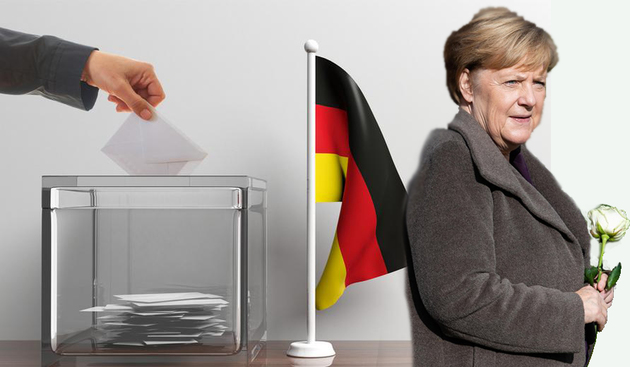Jamaica, Germany, Kenya or traffic lights? The names of the potential German coalitions — and their corresponding party colors — can be quite exotic. But as the vote has begun to split in the run up to the federal elections next month, the possible combinations that will make up Germany’s government have grown. The race is still wide open, Spectator World writes.
Coalitions were purposefully built into Germany’s post-war democracy — the voting system mixes first-past-the-post with proportional representation to ensure a workable splintering. With one notable exception in 1957, no political party has received the votes of over half of the electorate outright. It usually falls to the party with the most votes to find a coalition partner to form a majority government. Normally the larger party can rely on just one junior — but it looks increasingly likely that whichever party comes first will need the support of two runners-up.
It was widely expected that the 2021 election would be won by Angela Merkel’s Christian Democrats (CDU-CSU) who would then work with a coalition partner, possibly the Green party whose poll ratings were strong at the start of the campaign in the spring. But more recent polling shows that no two-way combination is currently likely to reach a majority.
The latest poll this week showed Merkel’s Christian Democrats at 22 percent, which would be the lowest result the party has ever had by quite some margin. This would put them neck-and-neck with the Social Democrats (SPD) who also came in at 22 percent, followed by the Greens at 17 percent, the liberals (FDP) at 13 percent and the right-wing AfD on 12 percent. No two political parties could form a majority together if these numbers were repeated at the election.
While three-party coalitions make up around half of the state governments, at the national level they could prove a lot more difficult to run. The federal government in Berlin by definition sets the vision and tone for the entire country rather than dealing with concrete local issues such as transport or education. A splintering of that vision — particularly among parties with broadly equal levels of support — means the chances of political stagnation are high. If the current polls are right, this would not be a coalition of one clear leader with support from two smaller parties; everyone would want a strong say in the direction the country would take post-Merkel.
It is not even yet clear who might lead such a coalition as Germany’s new chancellor. Commentators initially assumed that Armin Laschet, Merkel’s successor as CDU leader, had it in the bag, and the question was merely who would join him in running the country. But now Olaf Scholz, leading an SPD that many considered a spent force, looks like his most likely challenger. The moderate Social Democrat has a reputation for being a safe pair of hands — he is an experienced politician, currently serving as vice chancellor and minister of finance in Merkel’s coalition government. He has not received the same amount of media attention as his CDU competitor Laschet or the Green candidate Annalena Baerbock. But he has begun to quietly impress the German public on the campaign trail, avoiding the petty dramas seen in both the CDU and Green camps.
Scholz is rapidly closing the gap. His party is now neck-and-neck with the CDU-CSU, but if Germans were able to vote for a chancellor directly, he would win hands down. Currently, 34 percent of the public would choose him as the next chancellor while Baerbock only attracts 13 percent of the votes and Laschet trails behind on 12 percent.
With a background in law, Scholz is often seen as a sensible, solid candidate. He can point to a long political career in which he has served as the mayor of Hamburg and held a number of ministerial posts. He has also been involved with the SPD since he was a schoolboy. But he is not a fiery speaker, nor is he considered to have the skills needed to save his party from decades of steady decline. His growing support is as much a symptom of the other parties’ failures as his own political prowess.
Germany is now likely to end up with an unwieldy three-way coalition, which will be led by either an extremely unpopular candidate fielded by the Greens or the CDU, or by the marginally more solid Scholz. None of the three seem to have the credibility, charisma or popular support needed to keep a divergent troika toeing the same line. The electoral race is now less about who finishes first and it is not really about dark horses either. The big question is which of the horses might be persuaded to share a stable together when the race is over.






